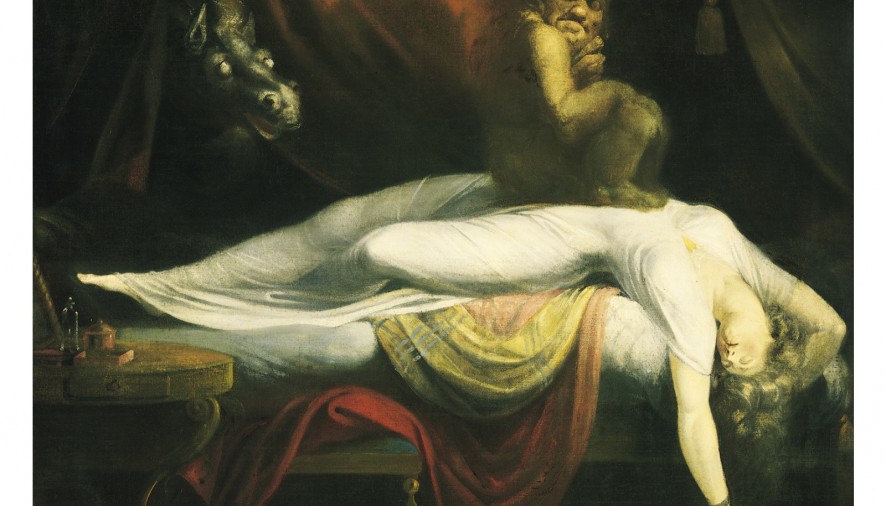Imagine this: in the middle of the night, lying on your side facing the wall, you wake up and realise you can’t move any part of your body except for your eyes. This in itself is a very unsettling experience, but then imagine you can hear whispers from behind you, filling you with abject terror, a terror which intensifies when the whispers get louder and then feels like someone is pushing down on your chest making it difficult to breathe, and no matter how much you try to make a noise and push this entity off you nothing happens.
This is what is known as sleep paralysis, which thankfully doesn’t last more than a few minutes, although it’s unfortunately happened to me a couple of times in the past few months.Why does it happen? You have two ‘phases’ of sleep, if you will: Non-Rapid Eye Movement and Rapid Eye Movement. The latter, REM, is a sleep-phase when your brain is very active and you can dream, but your body is essentially paralysed so you don’t act out what’s happening in your dreams. Sleep paralysis is when you regain consciousness but your body is still paralysed from this for a little while, and you can start to hallucinate, and because you know you’re awake it feels so real, and therefore terrifying.
It is, however, a fairly common phenomena, which according to a 1990 International Classification of Sleep Disorders report could happen once or twice in a lifetime to 40% of the British population. According to the NHS, a common cause of sleep paralysis is sleep deprivation, which as a student and person who stays up too late binge-watching a new TV series, I can relate. Now that I know what it is, and that it’s a common-enough thing to happen to people, I don’t get as freaked out by it, and a good trick I’ve found is trying to wiggle a toe or a finger to make your body remember that it’s awake.
The painting by Henry Fuseli, titled ‘The Nightmare’ (1781), has been interpreted as displaying sleep paralysis. The incubus sitting on the sleeping woman’s chest is a manifestation of the hallucinations and weight on your chest that is associated with sleep paralysis.
So if you have experienced something like this, it’s good to know that you’re not alone, or if it hasn’t happened to you, now you know, just in case.
Alice Smith

